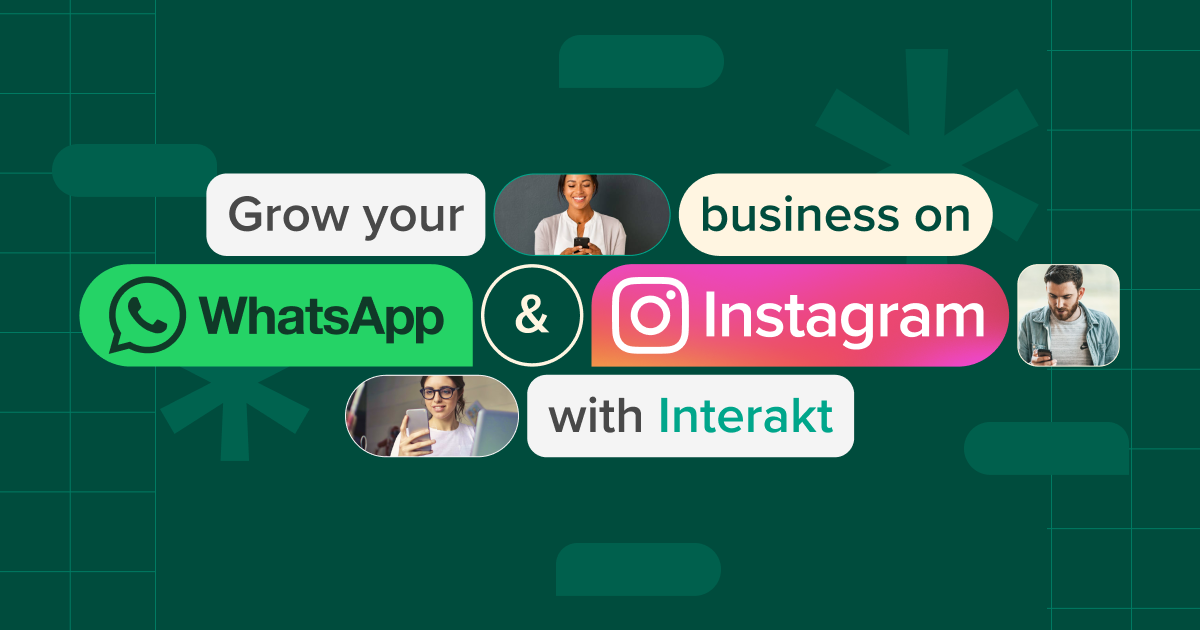Let’s face it, no one likes waiting on hold or juggling multiple apps just to book an appointment.
With more customers expecting instant, hassle-free communication, businesses are turning to WhatsApp for scheduling and reminders.
Why? Because it’s already where your customers are.
From sending quick confirmations to reducing no-shows, WhatsApp is becoming the go-to tool for appointment-based businesses.
In this post, we’ll explain how you can use WhatsApp Business API effectively to manage bookings, automate reminders, and keep your appointment game strong.
Why WhatsApp is Ideal for Appointment Scheduling
When it comes to booking and managing appointments, speed, simplicity, and accessibility matter, and WhatsApp checks all those boxes. Here’s why more businesses are using WhatsApp as their go-to scheduling tool:
1. Widespread Usage
WhatsApp has over 2.7 billion active users and ranks as the most-used messaging app in the world. Your customers already use it, regardless of age or tech comfort level. That makes it an easy choice for businesses that want to simplify appointment scheduling without adding extra steps for clients.
2. Instant Communication
Unlike email, which often gets buried, or phone calls that go unanswered, 80% of WhatsApp messages are read within 5 minutes. It offers real-time, two-way communication that makes confirming, rescheduling, or canceling appointments quick and painless for both sides.
3. Automation Capabilities
Answering every message manually gets tiring fast. With WhatsApp Business and the API, you can set up auto-replies, chatbots, and scheduled reminders. It helps you stay responsive without constantly being online, especially during peak or off-business hours.
4. Rich Media Support
WhatsApp lets you do more than just text. You can send confirmations, calendar links, directions, documents, and short videos. With video expected to make up 82% of all internet traffic by 2025, this rich media support helps customers stay informed and prepared before their appointment.
5. Integration with Business Tools
You can connect WhatsApp with your existing CRM or scheduling software to automatically sync appointments, customer details, and reminders. This reduces manual updates and helps your team manage everything from one central place without switching platforms.
How to Set Up WhatsApp for Scheduling Appointments
If you’re ready to use WhatsApp for appointment scheduling, here’s a step-by-step approach to help you set things up the right way. Follow these actions to keep your booking flow smooth, responsive, and efficient:
1. Using WhatsApp Business Features
Start by setting up your business profile on the WhatsApp Business app. Add your logo, hours, and contact info. Use quick replies to handle common questions. These features work well for basic needs, but for advanced automation, you’ll need the WhatsApp Business API.
2. Automating Bookings with Chatbots
You’ll need to set up a chatbot powered by the WhatsApp Business API to automate appointment scheduling. This is where a solution provider like Interakt comes in; they help you create a guided booking experience where customers can select services, pick time slots, and confirm appointments without any back-and-forth.
3. Integrating with Scheduling Software
Connect WhatsApp to tools like Google Calendar, Calendly, or your CRM. This keeps appointments synced and enables automatic reminders. Use third-party platforms or API integrations to set this up.
4. Creating Custom Message Templates
Set up message templates for confirmations, reminders, and follow-ups. If you’re using the API, these templates must be pre-approved by WhatsApp. Templates save time and ensure clear, consistent communication.
5. Handling Appointment Requests Manually
If you’re a small business just starting out, you can manage appointments manually using simple chat replies. Be clear, prompt, and professional in your responses. Use labels to organize chats and set up greeting messages or away messages to keep clients informed when you’re not available. It’s a low-tech but effective way to manage bookings until you’re ready to automate.
Sending Appointment Reminders and Notifications on WhatsApp
Here’s how to use WhatsApp to send timely, clear, and engaging appointment notifications that keep your customers in the loop:
1. Automated Reminder Messages
Set up automated reminders to go out a few hours or a day before the appointment. This simple step can significantly reduce no-shows and last-minute cancellations. With the WhatsApp Business API, you can schedule these messages to be sent without any manual effort.
2. Customizable Reminder Templates
Use personalized templates based on the type of appointment or service. Mention the client’s name, time, and service details to make it feel more personal. Pre-approved templates ensure you’re compliant while keeping the tone professional and friendly.
3. Follow-Up Messages Post Appointment
After the appointment is done send quick follow up messages. You can ask for feedback, share care tips, or offer a discount on the next visit. It’s a simple way to build trust and increase repeat bookings.
4. Using Rich Media for Clarity
Make your reminders more useful by adding maps, directions, or even short video instructions. Visuals reduce confusion and help customers arrive on time and fully prepared.
5. Two-Way Communication
Allow customers to confirm, reschedule, or cancel directly through WhatsApp. It keeps the experience smooth and avoids missed appointments due to miscommunication or delays in response.
Benefits of WhatsApp for Appointment-Based Business Communication
Here are some benefits of using WhatsApp for appointment-based business communication:
-Improved Customer Experience: Customers get a simple, familiar way to book, confirm, or reschedule without switching apps or being on hold.
-Higher Engagement and Response Rates: WhatsApp messages boast an open rate of 98%, significantly higher than email and sms, which averages around 20%. This means your messages are almost guaranteed to be seen, leading to quicker responses and smoother appointment coordination.
-Cost-Effective Solution: Cuts the need for call center staff or manual follow-ups, saving time and operational costs.
-Reduced No-Shows: Automated reminders and real-time confirmations help ensure customers don’t forget or miss their appointments.
–Scalability for Businesses: Whether you’re a solo professional or a large enterprise, WhatsApp adapts to your workflow and grows with your needs.
Best Practices for Managing Appointments on WhatsApp
To get the most out of WhatsApp for appointment scheduling, follow these practical steps to stay organized, compliant, and efficient:
1. Get Clear Opt-Ins
Always ask for customer consent before sending appointment messages. Use website forms, chat prompts, or in-store check-ins to collect it.
2. Keep Messages Structured
Use short, clear sentences. Include key details like date, time, location, and any prep instructions up front.
3. Make Rescheduling Easy
Add quick-reply buttons or simple prompts like “Reply 1 to confirm, 2 to reschedule” so clients can take action without typing much.
4. Track Engagement
Regularly check response rates, open rates, and appointment attendance to adjust your timing or messaging based on the trends.
5. Use the WhatsApp Business API
If you’re managing a high volume of bookings, switch to the API. It allows automation, message templates, chatbot integration, and CRM syncing at scale.
Conclusion
Manually managing appointments leaves too much room for error.
To ensure nothing falls through the cracks, you need automation in place. That’s where the WhatsApp Business API makes all the difference.
A WhatsApp API provider like Interakt helps you send timely reminders, confirmations, and follow-ups without lifting a finger.





